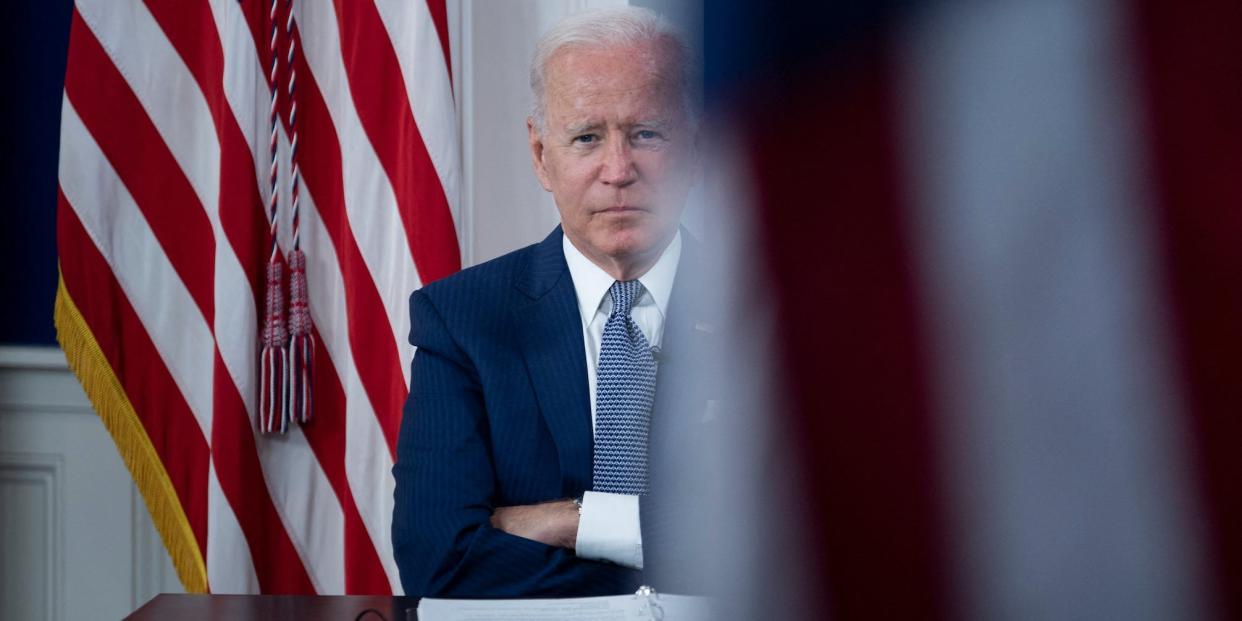A former top Obama economist throws cold water on the Biden administration's favorite inflation argument: 'Corporate greed is a bad theory'

- Oops!Something went wrong.Please try again later.
- Oops!Something went wrong.Please try again later.
- Oops!Something went wrong.Please try again later.
Jason Furman is among the economists who aren't buying the Biden administration's inflation argument.
Biden has asserted that big companies have been making inflation worse by excessively raising prices.
Republicans are hitting Biden for rising inflation, posing a fresh political problem for Biden.
President Joe Biden has grappled for months with soaring inflation under his watch. And as 2022 kicks off, it hasn't fallen as quickly as the administration hoped.
White House officials long contended that the spike in consumer prices would be short-lived as the economy rebounded last year, but it hasn't played out like that. A federal report issued Wednesday showed prices rose a still-elevated 7% in December compared to a year ago, the fastest pace in nearly four decades.
Supply chains are still broken with consumer demand surging for all types of goods like used cars and groceries. The Biden administration is pinning the blame for rising prices on corporations like meat processors for profiting off the pandemic. But many economists, including one that served in the Obama administration, aren't buying it.
"Corporate greed is a bad theory of inflation," Jason Furman, a former top economist for President Barack Obama, said in an interview, adding, "I think almost everything other than the Federal Reserve is a sideshow when it comes to the dynamics of inflation."
Furman noted that demand outstripping supply is a far more important driver of inflation. "The main reason prices go up is companies are trying to make as much as they can, they just can't make enough to satisfy everything that people want," Furman, now a Harvard University professor, said. "When that happens, prices go up. If they didn't go up, we'd have worse shortages right now."
Republicans are hammering Biden for rising prices, which poses a fresh political obstacle as Democrats try to safeguard their narrow Congressional majorities in this year's midterms. A Quinnipiac Poll University poll released Wednesday found that 54% of Americans believe the economy is getting worse.
"This crushing report shows Democrats' spending has pushed Bidenflation to achieve the highest prices in 40 years, killing family budgets and wiping out three years of wage gains," Rep. Kevin Brady, the top Republican on the tax-writing House Ways and Means panel, said in a Wednesday statement after the latest inflation data.
The GOP has blamed the $1.9 trillion stimulus law for stoking inflation. Research from the Federal Reserve Bank in San Francisco published in October suggested its effects would be modest and brief. Other indicators like a falling unemployment rate and rising wages reflect an economy that's rebounding.
The White House and many Democrats on Capitol Hill have touted the $2 trillion Build Back Better plan as a key measure to hold down everyday costs for Americans, including establishing new prescription drug price controls and new childcare subsidies.
But Sen. Joe Manchin of West Virginia put a dagger into the package last month. Without him, Democrats can't muscle the plan through over unanimous GOP opposition in the 50-50 Senate.
Manchin has signaled he won't revisit his position in the near future and has often cited inflation as a reason to pump the brakes on the social and climate spending bill. "Inflation is a concern for every American, especially in West Virginia," Manchin told Insider on Wednesday. "It's hitting us very hard."
Furman pushed back against Manchin's argument. "I think inflation is a bad reason to not want to pass Build back Better," Furman said. "It's mostly paid for. It's a medium and long-term agenda and would have a negligible impact on inflation."
Read the original article on Business Insider

